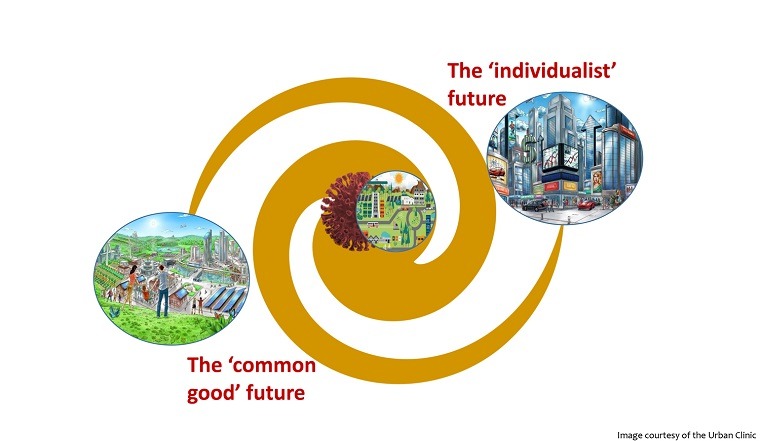
In a world reimagined due to the Coronavirus, where social distancing, hygiene regulations, and governmental restrictions are infused into nearly every activity, cities find themselves needing to reinvent the public arena. The Tel Aviv-Jaffa Municipality, home to nearly half a million people, was determined to combat the fear and the economic slump engendered by the stay-at-home measures, while also ensuring the existence of a welcoming, green, safe, and equitable city following the easing of restrictions.
Thus, the municipality turned to the Hebrew University's Urban Clinic, renowned for its expertise in community planning projects, to help develop its exit strategy from the lockdown. The Urban Clinic's combination of academic depth and practical experience placed it in a unique position to guide the municipality and develop creative solutions.
The Urban Clinic, in partnership with the Urban Innovation and Sustainability Lab at Tel Aviv University, performed a triple role. As convener, they established the forum for the exit strategy, bringing together some 50 specialists in transport, welfare, housing, economics, sociology, and architecture. These included professionals and academics, as well as decision-makers from the Tel Aviv, Jerusalem, and Beersheva municipalities. The Clinic's role in enabling all these people to brainstorm together, virtually, was crucial.
In its second task, as curator, the Clinic organized and moderated a series of weekly Zoom meetings, with break-out sessions to analyze each topic in depth. The Clinic carefully tailored these meetings to facilitate information exchange, creative thinking, and open discussions.
The Clinic’s third function was pedagogical: to educate the forum’s members by preparing summaries of the literature and experience from abroad on post-lockdown scenarios, while creating an efficient format for taking practical steps and reaching concrete outcomes. Time was of the essence: residents were itching for normalcy, yet it was clear that the exit strategy also had to be sound, making all the difference to the residents’ quality of life and the ongoing management of the pandemic.
One of the forum’s primary objectives was providing services for the city’s vulnerable denizens. The challenge was to provide their needs within public venues, while also maintaining social distancing. It became clear that sharing spaces was going to be vital. With the Clinic’s guidance, the forum identified underutilized locations. For example, they recommended using schools in the afternoon and community centers in the morning. In this way, community activities and social services could be safely provided. This format was hugely successful and is expected to serve as a model for other cities in Israel.
An in-depth article about Hadas, a member of the Urban Clinic heavily involved in these efforts, can be found here.


